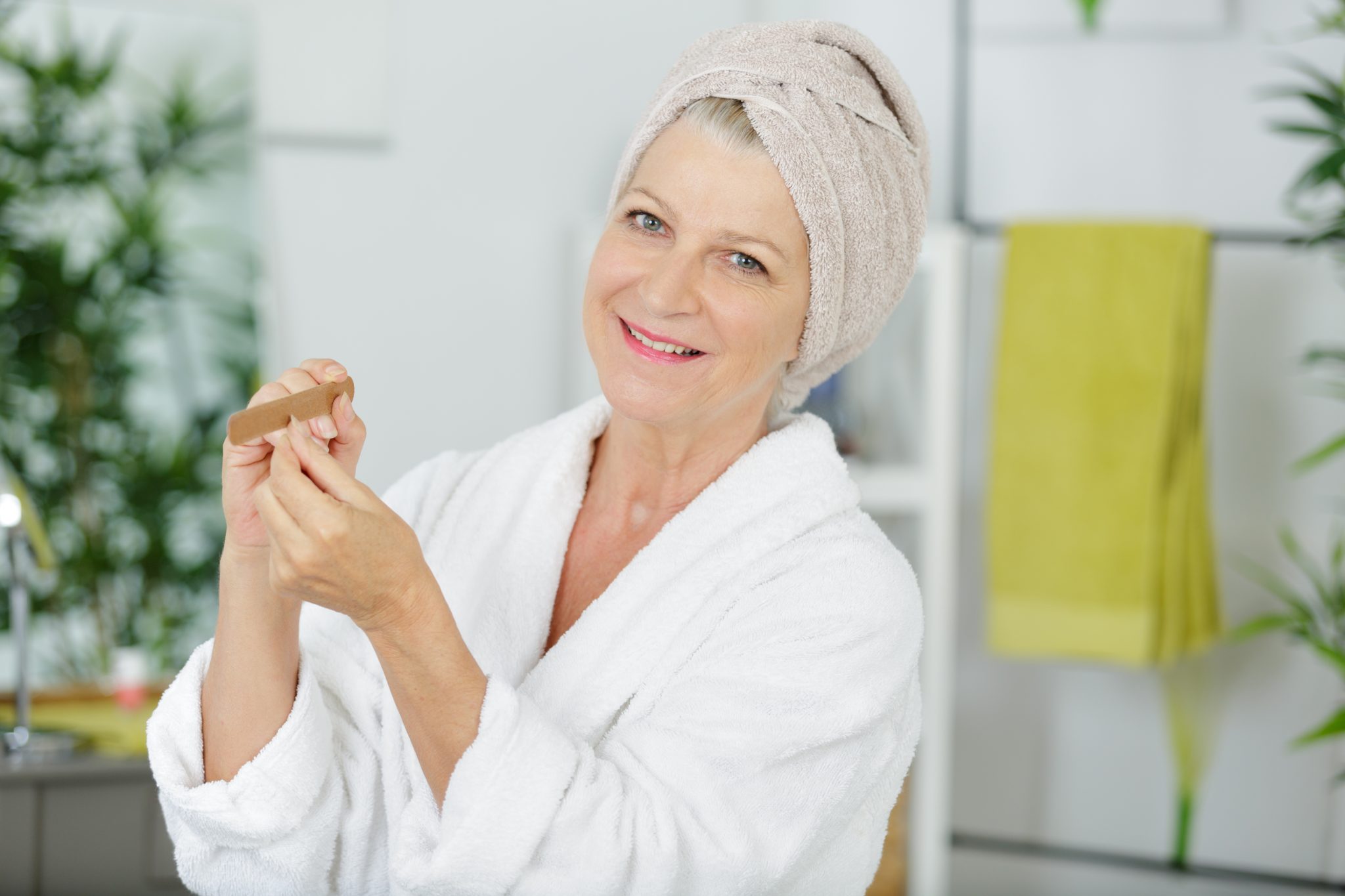February is often called the month of love, and for good reason! With Valentine’s Day right in the middle of it, many people place a lot of emphasis on their relationships—romantic and otherwise. This might mean buying your partner flowers, gifting your friends some chocolates, or giving strangers an extra smile as you walk past them. You might be on the receiving end of this too!
As nice as this extra outpouring of love is, February can also be a hard month for many; and, as an older adult, you are unfortunately far more likely to feel negatively at this time of year. You may be experiencing heightened feelings of grief and loss, or grappling with the fading of treasured past memories—you might also simply be feeling the pressure of wanting to do lots of good deeds for your loved ones, but not having as much energy as you used to.
Whatever you may be feeling, it is important to recognize that these emotions are perfectly natural, and are an expected part of the aging process. However, that doesn’t mean that things have to stay this way! By showing yourself some extra love this month, you’ll be able to better show your love to others—and you can do this by incorporating some self-care into your lifestyle.
What is Self-Care?
When you hear the words “self love” or “self care,” your mind likely goes straight to massages, spa days, and blissful vacations. However, there is actually a lot more to self-care than just these indulgences. Although massages and beachy vacations are definitely wonderful, they aren’t the only ways to show yourself some love!
In fact, self-care is mainly about improving your overall lifestyle by making the necessary changes—even if they are initially uncomfortable. It’s about prioritizing yourself, taking the time and putting in the effort to make yourself feel better. This could mean working towards feeling better physically, mentally, emotionally, socially, spiritually, or a combination of all of the above. Most people do a fair amount of self-care without really thinking about it; reading a good book, going for a walk, and eating your favourite meal are all great examples. Self-care can also be personalized to your lifestyle—everybody is unique, and so self-care activities will be varied from person to person. What matters is that the activities make you feel good, especially in the long term!
The rest of this article will detail some simple self-care activities. Whether you already have some go-to activities, or are looking to start doing self-care for the first time, our hope is that you find something that suits you, your needs, and your lifestyle!
1. Try New Things
One of the best ways to improve your quality of life is by continually trying new things. Not only does it help to keep things fresh and exciting, but it can also improve your cognitive health—something that becomes increasingly important with age. In one NCBI study, older adults who participated in active learning activities were found to have better memory function than their less active counterparts; some other studies have even linked active learning to a decreased risk of Alzheimer’s disease.
Because of these benefits, learning new skills is an excellent way to show yourself some love. Depending on your lifestyle, interests, and pre existing skill set, you might choose to do different things. Perhaps you’re interested in languages, and want to start dedicating a few minutes out of your day to learn a new language. Or maybe you’re an artist, and want to try out a medium outside of your comfort zone. Or maybe you just want to learn something completely new, like crocheting, poetry, photography, or coding. Whatever your activity of choice may be, it is important to choose something that truly challenges you. In the NCBI study, it was noted that “productive” activities, or activities which require active learning, are far more beneficial than “receptive” activities, which rely on existing skills and knowledge. By choosing to learn something truly novel, you’ll gain a lot more.
These activities also don’t have to be done alone! Often, having a structured learning environment—like a club, or lessons—can keep you motivated and on track to picking up these new skills. Some activities, like volunteering, also come with the added benefit of being able to help others, meaning that you’ll be able to show both yourself and others some extra love.
2. Embrace Nature

Luckily, nature-related self-care activities are both abundant and, for the most part, easy to integrate into your day to day life. Embracing nature can be as simple as going outside for a walk every day, or spending some time outdoors at a local park. If you happen to have a bit of extra time to kill, you can also try going on longer hikes, or spending some time intentionally connecting with the nature around you. To do this, try to reflect on what you can notice through each of your senses, such as hearing birds singing, watching trees sway in the breeze, and smelling flowers and herbs. Alternatively, you can use the nature around you as a source of inspiration for creative hobbies. A little mundane patch of moss can become the fascinating focal point of a photograph, short film, drawing, painting, poem, or even a longer story. This is also a great chance to try out new hobbies, which—as mentioned above—are great for your mental health.
If you don’t have access to a lot of greenspace in your neighbourhood, you can embrace nature in your own home by keeping houseplants, or growing things in your garden. Even if you don’t have much of a green thumb, hardy houseplants like zz-plants, cacti, and succulents can make easy, low-maintenance additions to your home. Taking care of these plants by watering them, repotting them, and simply watching them grow can all serve as wonderful self-care activities.
3. Get Moving
According to the National Institute on Aging (NIA), being physically active has numerous benefits for older adults. These include increased energy, endurance, and strength, as well as improved balance and decreases in risks of falls, heart disease, diabetes, and other disorders. There is also lots of evidence that suggests that physical exercise has positive effects on cognitive health, from improved memory to decreased risks of Alzheimer’s disease.
As a general rule of thumb, it is recommended that older adults get at least 150 minutes of moderate physical activity per week. Because of this, working to incorporate physical activity into your lifestyle is a great way to show yourself some love.
If you are already a fairly active person, adding an extra bit of self-love into your exercise routine could look like taking more time to stretch, both before and after exercising, in order to keep yourself relaxed and pain-free. If you are not currently as active as you could / should be, your new self-care activities could include taking a walk, doing a few minutes of yoga, or attending an exercise class. As exercise can be easily adapted to your needs, finding a type of exercise that works for you is generally a pretty enjoyable process—just keep an open mind, and don’t be afraid to try things out until you find something that works for you, and you should be moving and grooving in no time! Some examples of exercises include aquatic fitness (aquafit), dance, pilates, weight and resistance training, yoga, tai chi, walking, hiking, swimming, and cycling, most of which can be adapted to suit your individual needs and abilities.
4. Expand Your Social Life
As an older adult, you are unfortunately more likely to struggle with social isolation and loneliness than other age brackets. As such, your social life is something that you should prioritize and aim to maintain. And, as per the NIA, having a well-established social life can also help to reduce the risks of cognitive decline—in one study, which had over 7,000 participants, it was noted that high degrees of social engagement are “associated with better cognitive health” in your golden years. Therefore, taking care of your social life is a great way to take care of yourself, too.
How you go about nourishing your social circle can vary. If you enjoy hanging out with pre existing friends, you can try allocating a set day each week or month—for example, the first Sunday of each month—to hang out together. This helps to take the stress out of planning, as you will always know that on that day, you’ll be meeting up with a certain friend. Do this with multiple friends, and pretty soon your social life will be flourishing! On the other hand, if you are interested in meeting new people, joining a local club or exercise class can put you in contact with like-minded people; this also combines the social benefits with the benefits of learning new things, in the case of hobby clubs, and exercise, in the case of exercise classes.
If you live in a remote area or small town without many activities, consider starting your own! Alternatively, you can also join online communities on platforms like Gransnet and Facebook, or simply call your friends and family via Zoom, Google Meet, or another calling platform.
Volunteering and other community service activities can also provide excellent ways to bulk up your social calendar, while simultaneously making you feel happier. According to Columbia University’s Irving Medical Center, showing generosity has many incredible benefits, from lowering blood pressure to decreasing stress levels. Performing acts of generosity for your community can, in turn, become acts of self-care and love!
5. Try Meditation

Starting to meditate is actually quite simple! The most common form of meditation doesn’t require any fancy equipment, and simply involves closing your eyes and focusing on your breath, making this a very accessible form of self-care. As you focus on your breath, you will naturally begin to find yourself getting distracted—don’t worry, as this is actually the point. Meditation isn’t about becoming totally devoid of thoughts, but rather about learning to notice that you have become distracted, and gently returning yourself back to your focused state. By doing this over and over, you build a habit of noticing and releasing your distractions without judgement, a skill that is transferable to many other areas of life. For example, if you struggle with chronic pain, meditation can help to build resilience to pain through the process of noticing, feeling, and releasing the painful sensations. While this likely will not completely remove the pain, it can certainly help you to manage it.
If you want to pamper yourself a little bit more, you can try setting up a meditation area in your home. This can be as big or as small as you would like, and can incorporate any number of things, from meditation cushions, to incense, to affirmation cards and meaningful photographs. As an intentional act of self-care, try to take some time to truly make your space into one where you feel loved and at peace.
6. Fuel Yourself Mindfully
Beyond meditation, there are many other ways to practice mindfulness. One such way is by being mindful of what you fuel your body with, from your diet to your sleep schedule.
As a first step, consider any unhelpful vices you may currently have. Do you drink more than you should? Are you a smoker? Asking yourself these questions is likely uncomfortable, but it is a very important step; without confronting these issues, you won’t be able to work through them. If you know that something is detrimental to your health—physical, mental, or otherwise—then taking the initiative to change that for the better is a definitive act of self-love. It may be tough, but in the long run, these changes have the potential to dramatically improve your quality of life.
Alongside this, try making small, but intentional, changes to your diet and sleep schedule. This might look like eating one healthy meal a week, calculating how much water to drink each day, or setting up a bedtime routine to help you to unwind and sleep more soundly. As with everything else discussed in this article, how you go about implementing this will look different for everyone. For example, some people may enjoy meal planning, while others may appreciate a bit more spontaneity in their dietary choices. The trick here is to find strategies that make your life easier, or healthier, or better overall, and then stick with them!
7. Treat Yourself With Kindness
Last, but certainly not least, treating yourself with kindness and care is crucial for self-care—after all, it’s in the name! This means giving yourself grace when you fall short of your goals, and understanding that self-care is about the long-term just as much as the short-term. Setting healthy expectations and boundaries, both with yourself and with others, is key.
This can also mean having fun! Try to treat yourself like you would treat a loved one—self-love is all about expressing your love for yourself. While everything should be done in moderation, giving yourself treats like going to your favourite restaurant and going on a nice vacation shouldn’t feel like they’re off limits. Neither should doctor’s visits, or trips to a therapist. Take care of your health—you deserve it!







